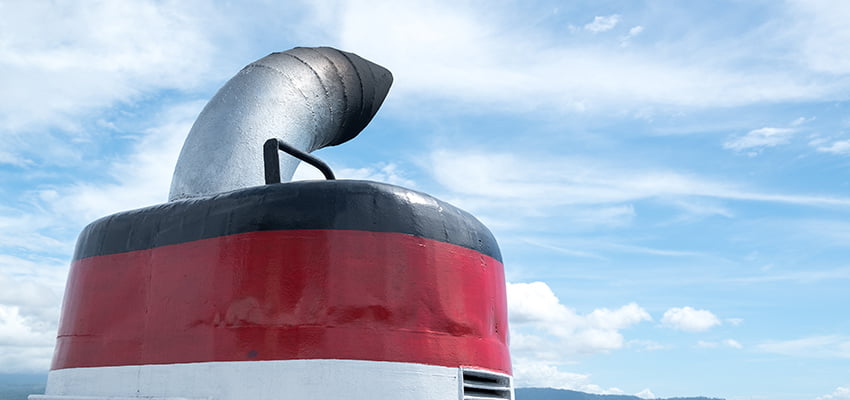GREENHOUSE gas reductions of up to 21% are achievable by using LNG as marine fuel rather than current oil-based fuels, a new study reports.
The Well-to-Wake study also maintains emissions of other pollutants, such as sulphur oxides, nitrogen oxides and particulate matter, are close to zero when using LNG compared with conventional oil-based marine fuels.
The study, commissioned by SEA\LNG and SGMF, was prepared by data and consultancy provider thinkstep according to ISO standards.
SEA\LNG chairman Peter Keller said the study confirmed what was already known in terms of LNG’s impact on air quality, human health and cleanliness, while highlighting “genuine, substantiated GHG benefits of using today’s marine engines capable of burning natural gas”.
“Moving from current heavy fuel oil to LNG does reduce GHG emissions,” Mr Keller said.
“LNG does contribute to the International Maritime Organisation GHG reduction targets. And it is clear that LNG is the most environmentally-friendly marine fuel that is readily available and safe, both today and in the foreseeable future.”
Study partner Chad Verret, Society for Gas as a Marine Fuel Board chairman said LNG was safe to use, compliant and readily available as a marine transport fuel.
“LNG meets and exceeds all current and 2020 marine fuel compliance requirements for content and emissions, local and GHG,” Mr Verret said.
“With the world LNG Bunker Vessel fleet doubling in the next 18 months and those vessels being deployed at major bunkering hubs, LNG as a ship fuel is rapidly becoming readily available.”
Researcher Dr Oliver Schuller from thinkstep software company said the goal of the study was to provide an accurate report of the life-cycle GHG emissions from LNG as a marine fuel compared with conventional marine fuels.
“This is a comprehensive report using the latest primary data to assess all major types of marine engines and global sources of supply with quality data provided by original equipment manufacturers,” Dr Schuller said.
“It is quality assured in assessing the supply and use of LNG as a marine fuel according to ISO standards.”
The full Well-to-Wake GHG Emissions Lifecycle Study can be accessed at: https://info.thinkstep.com/LNG-GHG-Study

